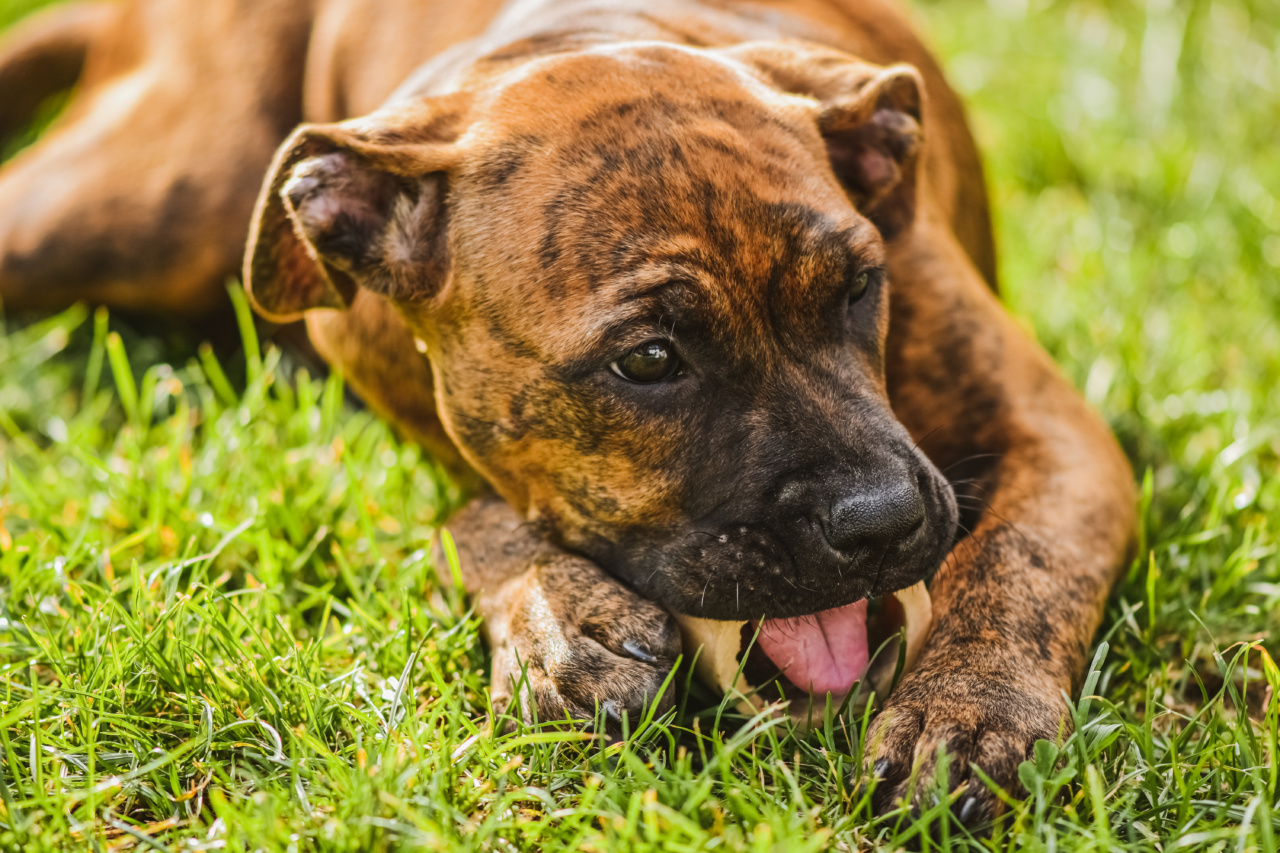Dogs have a unique set of behaviors and habits, one of which is their tendency to eat grass. While this may seem odd or even concerning to some pet owners, it is actually a very common behavior in dogs.
There are several reasons why dogs eat grass, and understanding these reasons can help you determine whether or not you need to take action.
Reasons why dogs eat grass
There are several theories as to why dogs eat grass. It is important to note that not all of these theories have been scientifically proven, but they provide some insights into this behavior:.
Nutritional deficiencies
Some experts believe that dogs may eat grass to compensate for certain nutritional deficiencies in their diet.
Grass contains essential vitamins and minerals, such as folic acid and fiber, which dogs may crave if their regular diet lacks these nutrients.
Digestive aid
Grass has been observed to have a soothing effect on a dog’s digestive system. If a dog is experiencing an upset stomach, they may instinctively eat grass to induce vomiting or relieve discomfort.
This is particularly common in dogs that have eaten something that does not agree with their stomach.
Boredom or curiosity
Sometimes, dogs may eat grass simply out of sheer boredom or curiosity. Just like humans, dogs can get bored and seek out activities to entertain themselves. Eating grass may provide them with a new and interesting experience.
Behavioral instinct
Dogs are descended from wolves, and wild wolves are known to eat grass on occasion. It is possible that the behavior of eating grass has been passed down to dogs as a part of their ancestral instincts.
However, domestic dogs may not necessarily have the same biological need for eating grass as their wild counterparts.
Should you be concerned?
In most cases, eating grass is not a cause for concern. It is generally harmless for dogs to consume small amounts of grass. However, there are a few instances where you should be cautious:.
Pesticides and fertilizers
If you use pesticides or fertilizers on your lawn, it is important to be cautious when your dog eats grass. These chemicals can be harmful if ingested.
Try to discourage your dog from eating grass that has been treated with chemicals by keeping them away from treated areas or using pet-friendly alternatives.
Indigestible objects
Occasionally, dogs may accidentally ingest indigestible objects such as sticks or rocks while eating grass. This can lead to blockages or other health issues.
Keep an eye on your dog while they are eating grass to ensure they are not consuming anything else harmful.
Excessive grass consumption
If your dog is eating an excessive amount of grass or appears to be obsessed with eating grass, it may be a sign of an underlying issue. Excessive grass consumption can sometimes be a symptom of gastrointestinal problems or other health conditions.
If you notice this behavior, it is best to consult with your veterinarian.
What can you do about it?
While eating grass is a natural behavior for dogs, there are a few things you can do to manage or discourage this behavior:.
Provide a well-balanced diet
To ensure your dog is getting all the necessary nutrients, feed them a well-balanced and complete diet. Consult with your veterinarian to ensure that your dog’s nutritional needs are being met.
Add fiber to their diet
If your dog seems to be eating grass because of a lack of fiber in their diet, consider adding fiber-rich foods such as vegetables or using fiber supplements recommended by your vet. This may help satisfy their cravings for grass.
Keep your lawn well-maintained
Maintaining your lawn regularly can help discourage your dog from eating grass. Keeping the grass short and removing any weeds can make it less appealing for your dog to munch on.
Provide alternative chew toys
If your dog eats grass out of boredom, providing them with alternative chew toys or interactive puzzle toys can help keep them entertained. This can divert their attention away from eating grass.
Redirect their focus
If you notice your dog starting to eat grass, redirect their attention to a different activity or command. Engaging them in play or training sessions can help alleviate their boredom and reduce their desire to eat grass.
Consult with a veterinarian
If you are concerned about your dog’s grass-eating behavior or if they are exhibiting any abnormal symptoms, it is best to consult with a veterinarian.
They can evaluate your dog’s overall health and provide personalized advice based on their specific needs.































